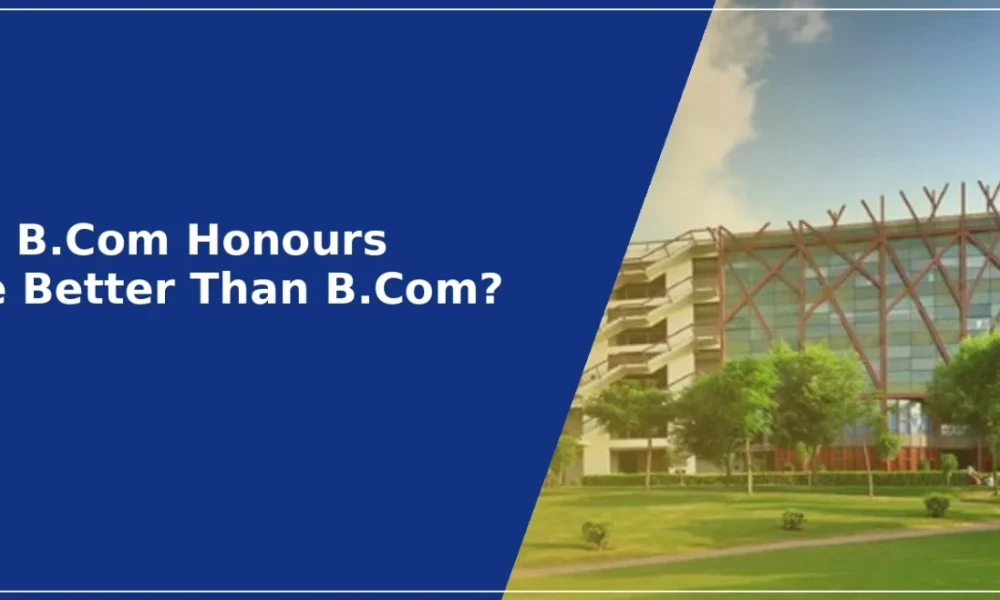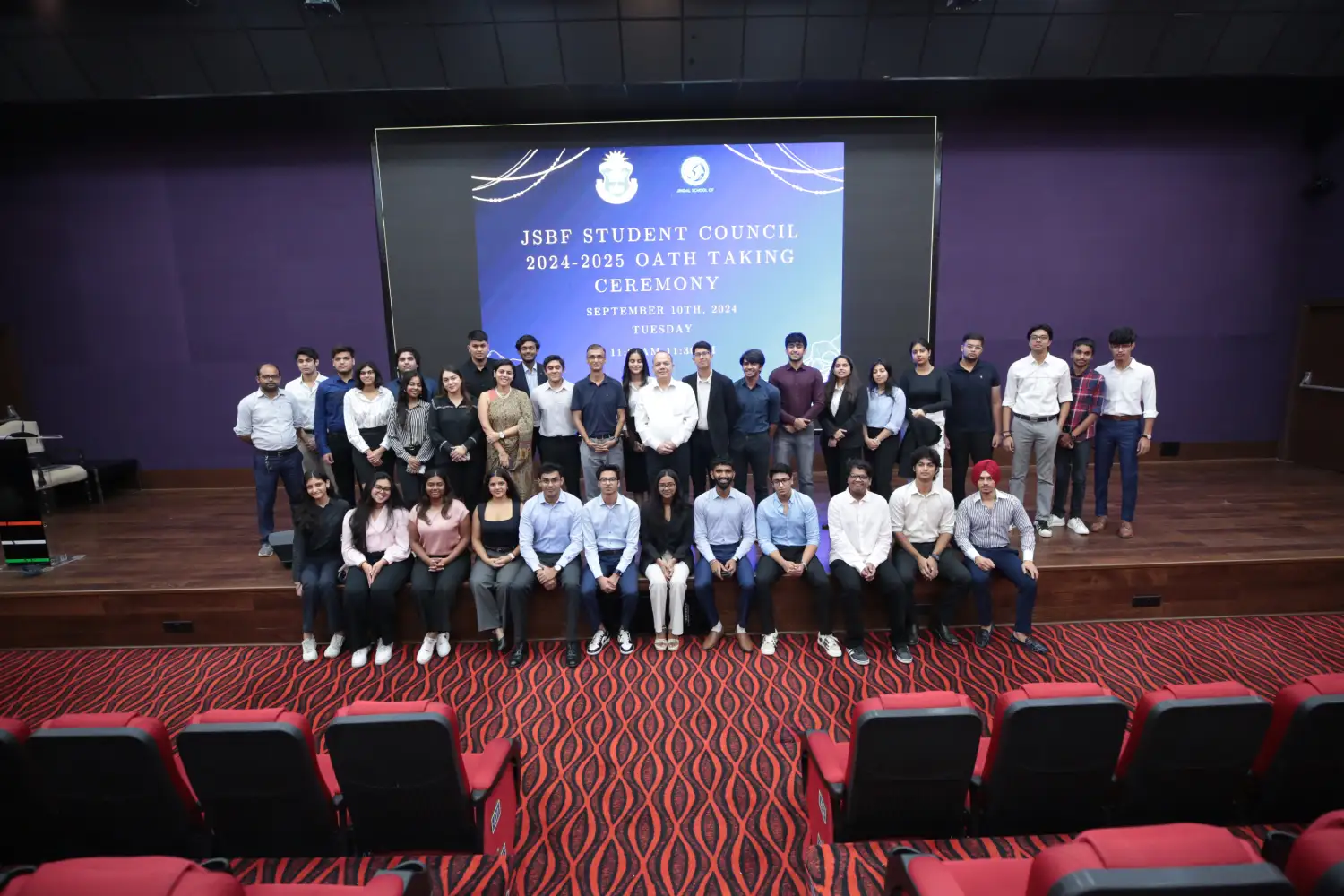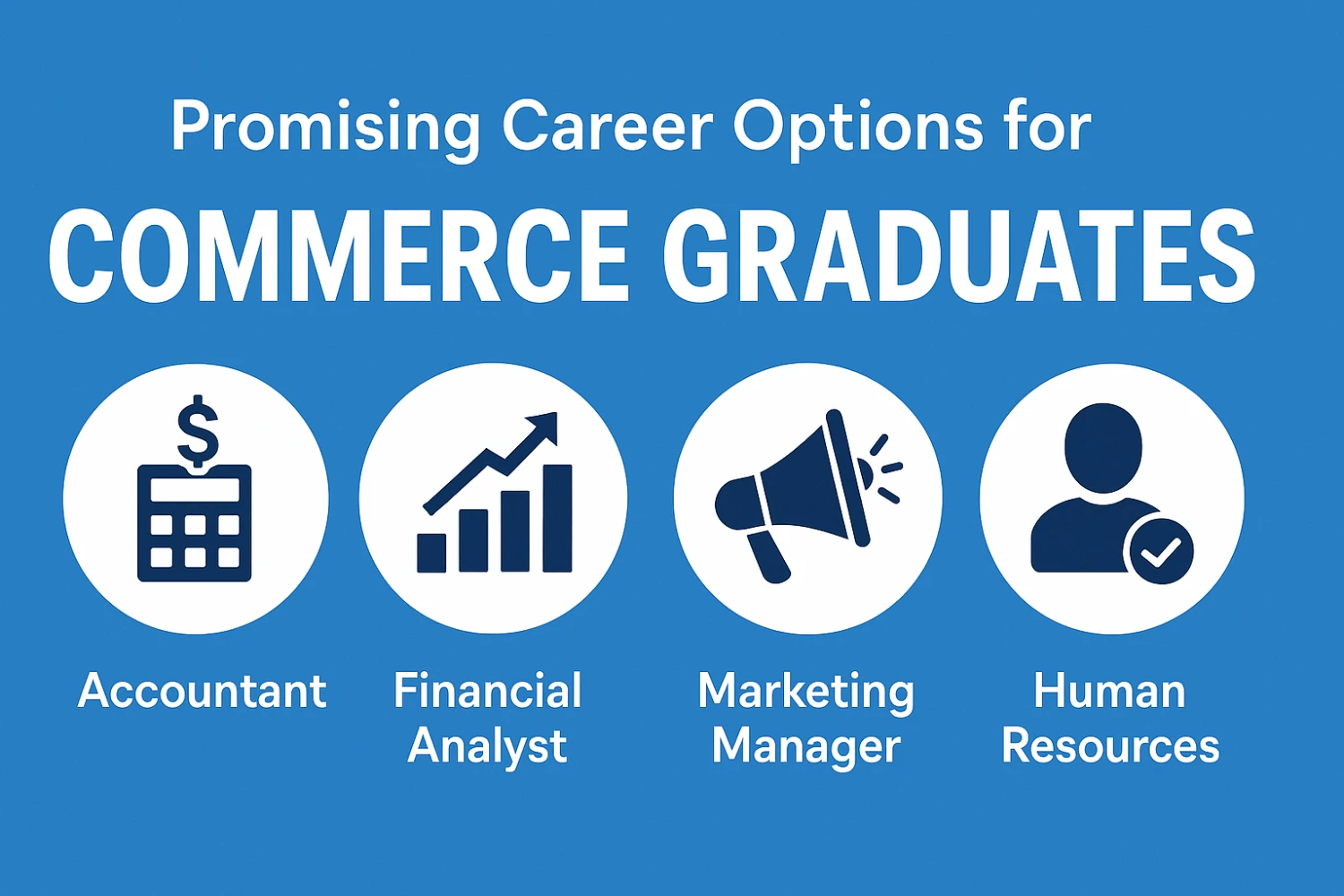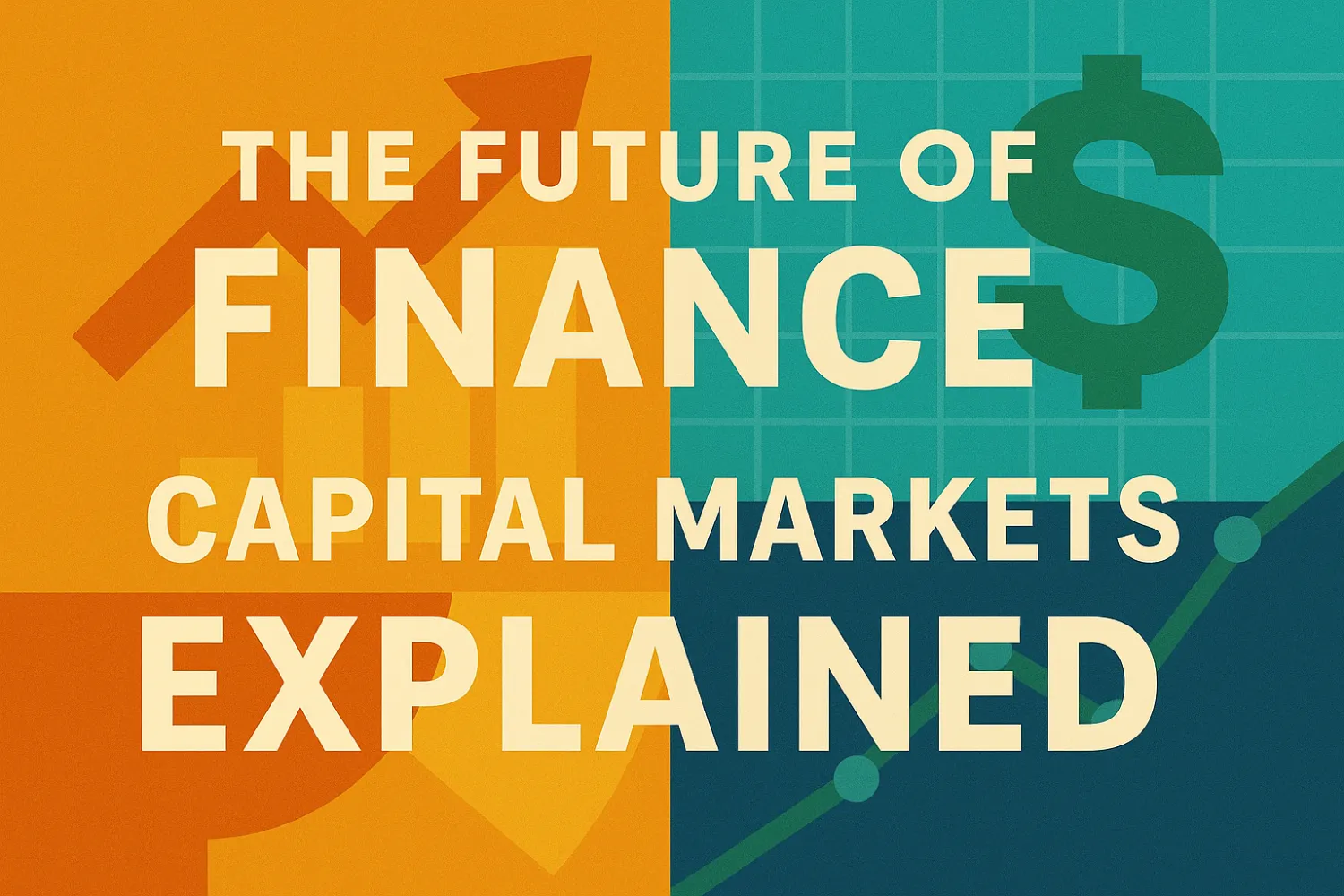Introduction
Humans have been willingly engaging in trade and commerce since ancient times and the beginning of human civilization. The barter system is one of the oldest recognised methods of commerce and trade that led the way to the development of modern economics, business, and international exports and imports. The BCom Hons colleges in Delhi are dedicated to giving students a complete understanding of commerce and its functionalities in the professional world. The Bachelor of Commerce (Honours) is distinct from the regular B.Com. degree in both depth and academic rigour. While both are undergraduate programmes aimed at providing foundational knowledge of commerce, business, and finance, the Honours degree is specifically structured to offer a more comprehensive and specialised curriculum.
| Table Of Contents | |
| 1. | Introduction |
| 2. | Understanding The Difference Between Business, Commerce & Trade |
| 3. | Impact Of E-Commerce In 2025 |
| 4. | What Makes BCom Hons Different from a Regular BCom Degree? |
| 5. | Eligibility & Selection Process For B.Com Hons At JSBF |
| 6. | What Are The Job Profiles To Expect After B.Com Graduation? |
| 7. | How Does The Jindal School Of Banking & Finance Prepare Students For The B.Com Graduation Programme? |
| 8. | FAQs |
| 9. | Source Links |
Understanding The Difference Between Business, Commerce & Trade
In a broader sense, commerce, trade and business may seem like the same thing or mere synonyms of one another, but in reality and in terms of Economics, that is not the case. The term commerce refers to an organised transfer of goods and services between two or more parties focusing especially on the sales and purchases.
Commerce is considered a subdivision of business, and business covers a bigger picture, including areas like manufacturing, sourcing, marketing and transportation. Interestingly enough, trade is believed to be a subset of commerce, as it deals with the final sale of completed products or services to a consumer and procuring money or anything equivalent for the goods and services sold. BCom Hons colleges in Delhi help build the foundation for understanding commerce and know about its different subdivisions.
Impact Of E-Commerce In 2025
Over the years, trade and commerce have evolved not just based on routes but also in their appeal and implementations. From the insidious triangular trade system to the mass production methods invented after the Industrial Revolution of the 18th and 19th centuries, global trade and consumerism have had a great impact on modern-day trading patterns.
India has always been a leading exporter of silk, sugar, cotton, spices, and precious stones, and the country has been an integral part of the Silk Road that stretched through the Middle East and connected the East of the world to the West, on land. The Silk Road has been one of the prominent ancient international routes for traders and travellers to venture into significant chunks of the world.
The 21st century saw the rapid rise and growth of eCommerce, which has made the commercialisation of products and services easy and also for consumers to easily get their hands on such goods and services. The rise of eCommerce must be attributed to the growing number of smartphones and other gadgets at individual possession.
Smartphones and internet services have made the experience of shopping easy for customers and relevant for businesses to get their products across. Ecommerce platforms use high-end technology and tools to build features like a reliable payment gateway, inventory and order management systems, and marketing automation software.
What Makes BCom Hons Different from a Regular BCom Degree?
The study of B.Com. Hons complies with all the types, tactics, tools and techs involved in business and trading and ensures students have real-world context for what they are learning in classrooms. The B.Com. general programme is also an undergraduate course; however, it does not go into as great detail as the Honours programme does.
The general course of B.Com. offers a basic understanding of the world of commerce and trading. Whereas, the BCom Hons colleges in Delhi include various additional subjects to make the programme more detailed and thorough.
B.Com vs B.Com (Hons.): A Comparative Table
| Criteria | B.Com (General) | B.Com (Honours) |
| Course Focus | Broad overview of commerce concepts | In-depth study of a specialised area in commerce |
| Curriculum Structure | Basic and foundational subjects | Specialised subjects with advanced topics |
| Duration | 3 years (typically) | 3 to 4 years (JSBF follows a 4-year model under NEP) |
| Academic Rigour | Moderate | High – includes research, case studies, and projects |
| Eligibility | Generally lower cut-offs | Higher cut-offs and entrance exam requirements |
| Career Prospects | Entry-level jobs in finance, accounting, etc. | Better opportunities in consulting, banking, analytics |
| Further Education | May need specialisation later (e.g. MBA, M.Com) | Direct path to postgrad studies or research |
| Industry Readiness | Basic employability | High – with internships, certifications, live projects |
| Suitable For | Students seeking general knowledge of commerce | Students focused on a specialised career in commerce |
In either case, the course aims to impart knowledge about business and management and build a professional outlook for students to start their careers. Usually, colleges take on an interdisciplinary curriculum and industry-oriented course structure that benefits students wanting to establish a career in the corporate market.
Eligibility & Selection Process For B.Com Hons At JSBF
Jindal School of Banking & Finance is considered one of the best BCom Hons colleges in Delhi for several reasons. They only allow candidates with passion and potential to complete the programme and are assessed accordingly. The eligibility and election process for the B.Com. Honours admission at the JSBF is strictly conducted in three rounds.
In the first round, the eligibility of students is evaluated by their class 10 and 12 marksheets with a government-recognised board certificate and a score in competitive exams. On advancing to the second round, the students will be required to appear for an entrance exam from one of the following types: SAT, CUET, UGAT, and ACT.
The Jindal Scholastic Aptitude Test (JSAT) is another option for students who have not appeared for the above-mentioned entrance examinations. For the last round, the most promising candidates will be taken in for a faculty interview, where the faculty will assess the potential of each student before giving them admission.
What Are The Job Profiles To Expect After B.Com Graduation?
BCom Hons colleges in Delhi are the breeding ground for future business leaders, managers, strategists, and technicians who are yet to change the commercial world for the better. These institutes provide extensive knowledge and industry-relevant skills under a 4-year course module.
The core programme consists of subjects such as Accounting, Economics, Statistics, Law, Corporate Finance, Financial Mathematics & Technology. The elective fields are included in close relation to the core subjects, offering an interdisciplinary understanding of the whole subject matter.
Academic Institutions like the Jindal School of Banking & Finance heavily rely on teaching techniques that include real-life business case-solving, building professional certification, critical thinking, and acquiring skills in using analytical tools such as MS Excel & Python.
How Does The Jindal School Of Banking & Finance Prepare Students For The B.Com Graduation Programme?
JSBF is one of the prestigious BCom Hons colleges in Delhi with a reputation for providing its students with a state-of-the-art infrastructure, an interdisciplinary and industry-oriented curriculum, the guidance of an overly qualified and experienced faculty, well-organised industry internships, opportunities for research, and international exchange programmes.
As B.Com. graduate students have either of two options to choose from: advanced study or joining the workforce. For the first type, students can go on to pursue a Master’s programme in one of the specialised subjects and then proceed to a P.hD. Since the graduation programmes are modelled with a research-led, future-oriented, industry-relevant, interdisciplinary approach, the students can definitely join the workforce soon after graduating.
FAQs
The B.Com. (Hons.) programme at JSBF is a four-year, fully residential undergraduate programme aligned with the National Education Policy (NEP) 2020. It is designed to provide both theoretical grounding and practical exposure through a mix of academic coursework, internships, and research.
To successfully complete the B.Com. (Hons.) degree, students must earn a total of 180 credits. This includes 164 credits through core and elective courses and 16 credits earned from internships, research projects, teaching assistantships, and co-curricular activities.
Applicants can apply through several accepted qualifying exams including JSAT (Jindal Scholastic Aptitude Test), SAT, ACT, CUET, and UGAT. Those who have not appeared for any of these exams may opt for JSAT as the primary route of admission.
JSBF offers over 80 international academic collaborations with reputed institutions across North America, Europe, Asia, Australia, and the Middle East. Students can participate in semester exchange programmes, short-term study abroad experiences, dual-degree pathways, and international data camps and workshops.
The programme provides a flexible and interdisciplinary curriculum that combines core courses such as Corporate Finance, Financial Technology, Law, and Economics with customisable elective pathways. Students can specialise in areas like Financial Planning and Risk Management, Banking Laws and Financial Regulations, Fintech and Analytics, or Global Consultancy and Entrepreneurship, and even take electives from other JGU schools.





